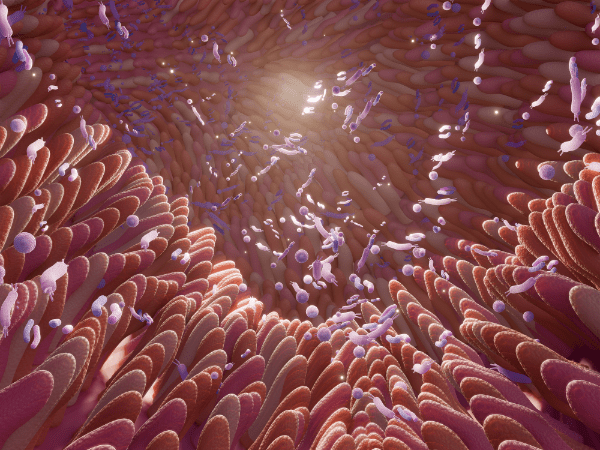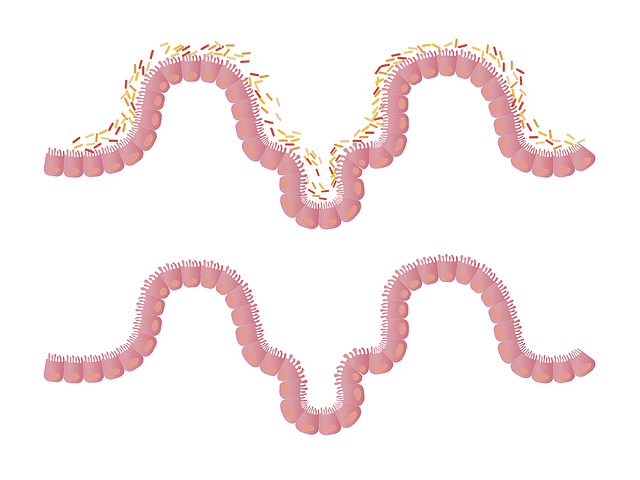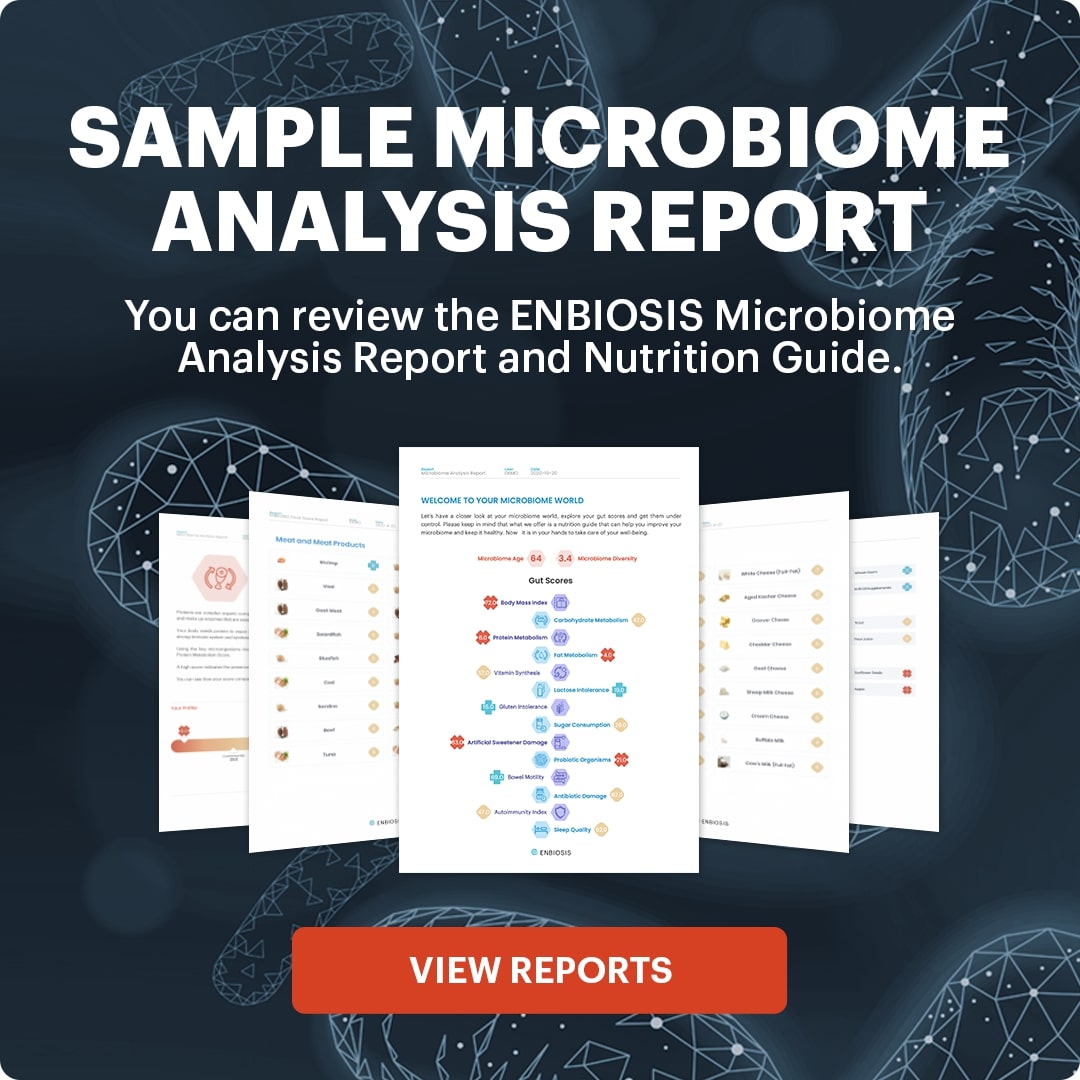Within your gut lies a complex and diverse ecosystem of microbes that play a key role in your overall health. This community of approximately 100 trillion microorganisms, including bacteria, viruses, fungi, and protozoa, influences everything from our digestion and metabolism through to our immune responses and mental health. Collectively known as our gut microbiome, this network of microbes thrives on diversity. However, our modern lifestyles can often disrupt this delicate balance.
In this blog post, we will explore the importance of the gut microbiome. We will also discover some simple steps that we can take to increase your gut microbiota diversity.
Table of Contents
How Does Our Gut Microbiome Influence Our Health
We all have a unique gut microbiome that is shaped by our genetics, our age, the way we were born, the food we eat, the drugs we take, and other environmental factors. The microorganisms that make up our microbiome play a crucial role in maintaining our overall health and well-being.
So, how do the bacteria living within our gut influence our health? These helpful microorganisms help us to absorb nutrients from food, digest certain components from our diet, such as fiber, produce essential vitamins, including vitamins B and K, modulate immune system function, and protect us against harmful pathogens.
Imbalances in the gut microbiome, known as gut dysbiosis, have been associated with several systemic disorders, such as autoimmune, cardiovascular, neurological, and cancerous conditions. There is also compelling evidence to suggest that the composition of our microbiome has a significant impact on our mental health. In fact, the diversity and prevalence of gut microbes have been linked with a variety of mental health conditions, including depression, anxiety, bipolar disorder, and schizophrenia.
The Importance of Gut Microbiome Diversity
Diversity is the key to a healthy microbiome. In basic terms, ‘gut diversity’ refers to the variety of different bacterial species that are present within the digestive system. Having a wide variety of microorganisms within the gut means that the microbiome can carry out its roles efficiently. A diverse microbiome is resilient and capable of quickly adapting to any changes.
A highly diverse microbiome is associated with a lower risk of disease, while individuals with a lower gut microbiome diversity have a greater risk of developing diseases, including psoriatic arthritis, Type 1 diabetes, celiac disease, obesity, and Type 2 diabetes.
Interestingly, a study recently published in Science revealed that a diverse gut microbiome can protect the body against harmful pathogens by competing for nutrients and preventing their growth.

Factors that Affect Microbiome Diversity
There are many factors that can affect the diversity of your gut microbiome, including:
- Diet – This includes your fiber intake, whether you eat a lot of processed foods, and your consumption of prebiotics and probiotics.
- Lifestyle – Regular exercise can positively influence your microbiome composition, while chronic stress and inadequate sleep can lower gut microbiome diversity.
- Antibiotics and other medications – Medications, including antibiotics, can kill beneficial bacteria within the gut as well as harmful ones. In fact, research shows that treatment with broad-spectrum antibiotics can decrease the diversity of the gut microbiome by approximately 30%.
- Birth method – Vaginal delivery provides exposure to the vaginal microbiota, while cesarean-born infants are exposed to their mother’s skin microbiota. This early colonization of microbes can influence microbiome diversity throughout life.
- Breastfeeding – Breast milk provides nutrients which selectively promote the growth of beneficial gut bacteria.
- Age – The diversity of our gut microbiome changes as we age. Infants have low microbiome diversity, which increases as they grow. Meanwhile, gut diversity begins to decline again as we age.
- Genetics – Our genetic background can also influence our microbiome diversity, but experts believe genetics to be less important than environmental influences.
- Infections and Illness – Certain infections and illnesses can disrupt the gut microbiota, lowering gut microbiome diversity.
Steps to Improve Your Gut Microbiome Diversity
Now we understand the crucial role that a diverse community of microbes plays within our gut, let’s consider how we can enhance it. Here are some proven steps that you can take to increase the diversity of your gut microbiota:
Diversify your diet
In order to optimize your microbiome, make sure that you incorporate plenty of fresh, washed fruits and vegetables into your diet. Foods high in fiber also provide a great source of nutrients for beneficial gut bacteria, so try to include foods such as nuts and seeds, legumes, and whole grains.
Researchers have found that incorporating plenty of fermented foods into your diet also helps to increase microbiome diversity. So, don’t forget to include some fermented foods as well. You could introduce kefir, plain yogurt, miso, or fermented vegetables into your eating habits.

Limit your intake of processed foods
Try to reduce your consumption of foods which are highly processed or rich in sugar. These types of foods can reduce the diversity of microbes within the good and fuel the growth of harmful, potentially pathogenic bacteria.
Take probiotic supplements
Probiotic supplements provide a source of live microorganisms designed to colonize the gut and support the growth of beneficial gut bacteria. Taking probiotic supplements can be particularly beneficial when dealing with gut dysbiosis, such as if you have recently taken antibiotics.
Probiotics help to promote gut diversity by competing with pathogenic bacteria for space and nutrients. This limits the growth of harmful bacteria and allows beneficial bacteria to thrive. Probiotics can also ferment dietary fibers, leading to the production of short-chain fatty acids (SCFAs). SCFAs help to support the cells that line the inside of your gut wall (the intestinal epithelial cells).
Get regular exercise
We all know that exercise is beneficial for our health, but did you also know that it can have a positive effect on your gut bacteria?
Evidence shows that regular exercise can enrich microbiome diversity and increase the number of beneficial bacteria. Exercise also improves the Bacteroidetes-Firmicutes ratio. Bacteroidetes and Firmicutes are two families of bacteria that make up the vast majority of microbes within the gut. The ratio of these bacterial species can have a significant impact on our health, with a higher ratio of Firmicutes being associated with certain diseases, including Type 1 and Type 2 diabetes, obesity, and heart disease.

Manage stress
Stress, whether psychological, physical, or environmental, has the potential to upset the balance and activity of our gut microbiota. As an example, a study looking at the composition of gut bacteria in a group of undergraduate students undergoing exams showed a decrease in beneficial gut bacteria during this time. This means that limiting our stress levels can also help to optimize our gut health. This could include strategies such as prioritizing sleep and practicing mindfulness and relaxation techniques.
Avoid unnecessary antibiotics
While often essential for the treatment of infections, antibiotics can lower levels of beneficial bacteria within the body as well as those causing harm. Gut bacteria are particularly susceptible to the effects of antibiotics, and the negative effects of these drugs can be severe and long-lasting.
In fact, research shows that dysregulation in the gut microbiome can continue for months after antibiotic treatment ends and include enrichment of antibiotic-resistant bacteria and a decrease in SCFA-producing microbes. Therefore, we should try to limit the unnecessary use of antibiotic treatments. If you are prescribed a course of antibiotics, taking a probiotic supplement alongside your medication may help to protect your gut health.
Microbiome Diversity Plays a Pivotal Role in Both Our Physical and Mental Well-Being
Evidence shows us that having a diverse microbiome populated with a wide variety of microorganisms is best for your health. This is because a diverse microbiome is better equipped to support the body and adapt rapidly to changes. Furthermore, studies have shown that individuals with low microbiome diversity have a higher risk of developing certain conditions, including diabetes, obesity, and inflammatory bowel disease. Therefore, it is vital that we maintain a robust and diverse microbiome by adopting healthy lifestyle habits and eating a balanced diet. The steps highlighted in this blog are a great place to start.

How Can Enbiosis Help?
At Enbiosis, we understand that a healthy body starts with a healthy gut. By addressing gut dysbiosis and balancing our intestinal bacteria, we can pave the way for health and longevity. But in order to do this, we need to understand the network of microorganisms that are currently inhabiting our gut. This is where Enbiosis comes in.
Enbiosis uses advanced artificial intelligence-powered technologies to map out the unique composition of your gut microbiome. Using this information, we create personalized food and supplement recommendations alongside detailed recipes to put you on track to optimal health.
Trust Enbiosis to restore the balance of bacteria in your gut.

